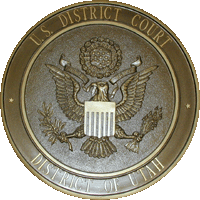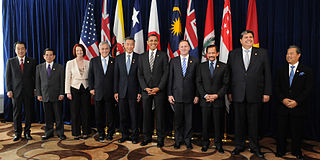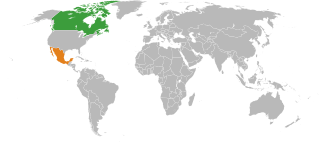Related Research Articles

The economy of Canada is a highly developed mixed economy. It is the 9th largest GDP by nominal and 15th largest GDP by PPP in the world. As with other developed nations, the country's economy is dominated by the service industry which employs about three quarters of Canadians. Canada has the third highest total estimated value of natural resources, valued at US$33.2 trillion in 2019. It has the world's third largest proven petroleum reserves and is the fourth largest exporter of petroleum. It is also the fourth largest exporter of natural gas. Canada is considered an "energy superpower" due to its abundant natural resources and a fairly small population of 38 million inhabitants, in relation to its land area.

The North American Free Trade Agreement was an agreement signed by Canada, Mexico, and the United States that created a trilateral trade bloc in North America. The agreement came into force on January 1, 1994, and superseded the 1988 Canada–United States Free Trade Agreement between the United States and Canada. The NAFTA trade bloc formed one of the largest trade blocs in the world by gross domestic product.

The Canada–U.S. softwood lumber dispute is one of the largest and most enduring trade disputes between both nations. This conflict arose in 1982 and its effects are still seen today. British Columbia, the major Canadian exporter of softwood lumber to the United States, was most affected, reporting losses of 9,494 direct and indirect jobs between 2004 and 2009.

OJSC "Yukos Oil Company" was an oil and gas company based in Moscow, Russia. Yukos was acquired from the Russian government by Russian oligarch Mikhail Khodorkovsky's Bank Menatep during the controversial "loans for shares" auctions of the mid 1990s. Between 1996 and 2003 Yukos became one of the biggest and most successful Russian companies, producing 20% of Russia's oil output. In the 2004 Fortune 500, Yukos was ranked as the 359th -largest company in the world. In October 2003, Khodorkovsky—by then the richest man in Russia and 16th richest man in the world—was arrested, and the company was forcibly broken up for alleged unpaid taxes shortly after and declared bankrupt in August 2006. Courts in several countries later ruled that the real intent was to destroy Yukos and obtain its assets for the government, and act politically against Khodorkovsky. In 2014 the largest arbitration award in history, $50 billion (€37.2 billion), was won by Yukos' former owners against Russia. This $50 billion award by the Permanent Court of Arbitration was ruled invalid by the District court in The Hague in 2016, but reinstated by the Court of Appeal of the Hague in 2020.

The Dominican Republic– Central America Free Trade Agreement is a free trade agreement. Originally, the agreement encompassed the United States and the Central American countries of Costa Rica, El Salvador, Guatemala, Honduras, and Nicaragua, and was called CAFTA. In 2004, the Dominican Republic joined the negotiations, and the agreement was renamed CAFTA-DR.

SCO v. Novell was a United States lawsuit in which The SCO Group (SCO), a Linux and Unix vendor, claimed ownership of the source code for the Unix operating system, which they had separately alleged were infringed by the Linux operating system. SCO sought to have the court declare that SCO owned the rights to the Unix code, including the copyrights, and that Novell had committed slander of title by claiming those rights for itself.

The Australia – United States Free Trade Agreement (AUSFTA) is a preferential trade agreement between Australia and the United States modelled on the North American Free Trade Agreement (NAFTA). The AUSFTA was signed on 18 May 2004 and came into effect on 1 January 2005.
TN status or TN visa is a special non-immigrant classification in the United States that offers expedited work authorization to a citizen of Canada or a national of Mexico, created as a result of provisions of the North American Free Trade Agreement that mandate simplified entry and employment permission for certain professionals from each of the three NAFTA member states in the other member states.

The Trans-Pacific Partnership (TPP), or Trans-Pacific Partnership Agreement, was a proposed trade agreement between Australia, Brunei, Canada, Chile, Japan, Malaysia, Mexico, New Zealand, Peru, Singapore, Vietnam, and the United States signed on 4 February 2016. After the newly elected US president Donald Trump withdrew the US signature from TPP in January 2017, the agreement could not be ratified as required and did not enter into force. The remaining countries negotiated a new trade agreement called Comprehensive and Progressive Agreement for Trans-Pacific Partnership, which incorporates most of the provisions of the TPP and which entered into force on 30 December 2018.
The multinational technology corporation Apple Inc. has been a participant in various legal proceedings and claims since it began operation and, like its competitors and peers, engages in litigation in its normal course of business for a variety of reasons. In particular, Apple is known for and promotes itself as actively and aggressively enforcing its intellectual property interests. From the 1980s to the present, Apple has been plaintiff or defendant in civil actions in the United States and other countries. Some of these actions have determined significant case law for the information technology industry and many have captured the attention of the public and media. Apple's litigation generally involves intellectual property disputes, but the company has also been a party in lawsuits that include antitrust claims, consumer actions, commercial unfair trade practice suits, defamation claims, and corporate espionage, among other matters.

Canada has access to all main sources of energy including oil and gas, coal, hydropower, biomass, solar, geothermal, wind, marine and nuclear. It is the world's second largest producer of uranium, third largest producer of hydro-electricity, fourth largest natural gas producer, and the fifth largest producer of crude oil. In 2006, only Russia, the People's Republic of China, the United States and Saudi Arabia produce more total energy than Canada.
Water exports involve exporting freshwater from one country to another. Large increases in human population and economic growth throughout the world during the twentieth century placed a huge stress on the world’s freshwater resources. Combined with climate change, they will place an even greater demand on water resources in this century. Water shortages have become an international concern, and freshwater has been described as “blue gold” and “the oil of the 21st Century.”

Canada–Mexico relations are relations between Canada and the United Mexican States. Although historic ties between the two nations have been dormant, relations between Canada and Mexico have positively changed in recent years, seeing as both countries brokered the NAFTA. They were on different sides of the Cold War Spectrum.
The trade relationship of the United States with Canada is the largest in the world. In 2016, the goods and services trade between the two countries totaled $627.8 billion. U.S. exports were $320.1 billion, while imports were $307.6 billion. The United States has a $12.5 billion trade surplus with Canada in 2016. Canada has historically held a trade deficit with the United States in every year since 1985 in net trade of goods, excluding services. The trade relationship between the two countries crosses all industries and is vitally important to both nations' success as each country is one of the largest trade partners of the other.
North American Free Trade Agreement's impact on United States employment has been the object of ongoing debate since the 1994 inception of the North American Free Trade Agreement (NAFTA) with Canada and Mexico. NAFTA's proponents believe that more jobs were ultimately created in the USA. Opponents see the agreements as having been costly to well-paying American jobs.

The Comprehensive Economic and Trade Agreement (CETA) is a free-trade agreement between Canada and the European Union. It has been provisionally applied, thus removing 98% of the preexisting tariffs between the two parts.
Investor-state dispute settlement (ISDS) or investment court system (ICS) is a system through which investors can sue countries for discriminatory practices concerning foreign direct investment. The purpose of the ISDS is to benefit the countries that voluntarily adhere to it; these countries benefit because foreign investors are motivated to invest under the protection that ISDS affords.
International trade and water is the relationship between international trade and the water being used by humans. The substantial increase in human population during the 20th century combined with rapid increases in overall global economic development has resulted in rising challenges for the future of public water management. The developing world has been particularly impacted by the lack of access to clean water. Each year, millions of people die due to illnesses, diseases, and lack the capital to create the infrastructure necessary to combat the problem. These conditions have increased the global demand for clean water and in turn, have pressured free market economists to suggest that wealthy market players are the most efficient solution to addressing water issues. Several nations can benefit from international trade in water. Particularly nations with excess fresh water and abundant capital are looking forward to making healthy profits from either the export of water to other nations, or are interested in the investment returns they will earn from participation in foreign markets. However, not everyone agrees that market forces are best capable of solving water issues. NGOs, human rights organizations, and various stakeholders oppose viewing water in economic terms. These individuals accuse international trade agreements and international economic institutions including the World Bank and the International Monetary Fund (IMF) of attempting to privatize a resource that they consider a basic human right. The lack of a common understanding of whether or not water should be viewed as a commodity or a basic human right has resulted in heated debates among legal professionals and leading members of the academia.

The Agreement between the United States of America, the United Mexican States, and Canada, commonly known as the United States–Mexico–Canada Agreement (USMCA) in the United States and the Canada–United States–Mexico Agreement (CUSMA) in Canada, is a free trade agreement between Canada, Mexico, and the United States. It replaced the North American Free Trade Agreement (NAFTA) implemented in 1994, and is sometimes characterized as "NAFTA 2.0", or "New NAFTA", since it largely maintains or updates many provisions from its predecessor.
British Columbia (B.C.) is the third largest Canadian province by population and fourth largest provincial economy. Like other provinces in the Canadian federation, B.C. consists of both private and public institutions. However, as Canada's westernmost province, located between the Pacific Ocean and the Rocky Mountains, B.C. has unique economic characteristics that distinguish it from much of the rest of Canada.
References
- ↑ "U.S. firm sues Canada for $10.5 billion over water". CBC news. Retrieved 9 July 2015.
- ↑ Boyd, David Richard (2003). Unnatural law: rethinking Canadian environmental law and policy. UBC Press. p. 56. ISBN 978-0-7748-1049-4.